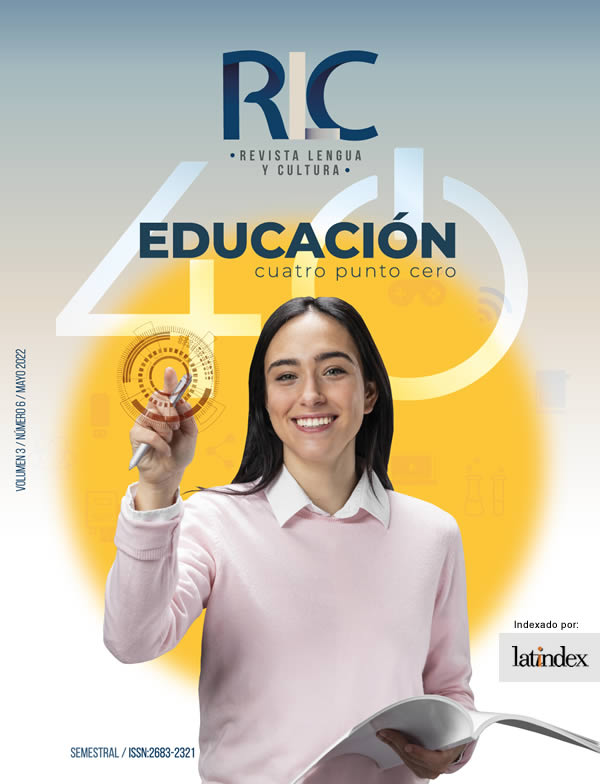Academic reinforcement for the development of communication skills in English through permanent activities
Abstract
The present work is based on the relationship between the academic reinforcements used by English teachers from a Normal School in northern Mexico and students' perspective regarding their usefulness in developing communicative skills in English as a second language. These reinforcements consist of permanent weekly activities with a variety of topics that require the combination of skills for their elaboration. This research includes concepts related to academic reinforcement and acquisition of a second language. In addition, a qualitative approach with descriptive methodology is used and information is collected through observation and a questionnaire, administered in such a way that it allows the documentation of the strategy applied by English teachers and its effect on student learning. Regarding the results, it highlights that students find this type of activities useful, motivating and varied, that attract their attention and allow them to progress without having to devote a lot of time to their realization. In the conclusion it is identified that continuity can be given to the activities, while increasing the level of difficulty in meeting the needs of the students, because they are the ones who perceive improvements in their second language communication skills.
Downloads
References
Córdova Viteri, P. N., y Barrera Erreyes, H. M. . (2019). Refuerzo académico y la consolidación de aprendizajes de matemática en estudiantes de básica media. Revista Boletín Redipe, 8(11), 100–110. https://doi.org/10.36260/rbr.v8i11.853
Gass, S. M., & Mackey, A. (2015). Theories in Second Language Acquisition An Introduction (B. VonPatten & J. Williams, Eds.). Routledge.
Gulzar, M. A., Gulnaz, F., y Ijaz, A. (2014). Utility of Krashen’s Five Hypotheses in the Saudi Context of Foreign Language Acquisition/Learning. English Language Teaching, 6(8), 134-138. 10.5539/elt.v7n8p134
Kavitha, K., y Kalanidhi, L.R.S. (2020). Reducing the Affective Filter in Tertiary Level ESL Learners Some Effective Strategies. UGC Care Journal, 31(23), 91-99. Researchgate.
Krashen, S. D. (1981). Second Language Acquisition and Second Language Learning. Pergamon Press Inc. ISBN 0-08-025338-5
Lightbown, P. M.; Spada, N. How languages are learned. Oxford Handbooks for Language Teachers. 4th ed. Oxford: University Press, 2013.
Maleki, Z., & Pazhakh, A. (2012). The Effects of Pre Modified Input, Interactionally Modified Input, and Modified Output on EFL Learners’ Comprehension of New Vocabularies. International Journal of Higher Education, 1(1), 128-137. doi:10.5430/ijhe.v1n1p128
Secretaría de Educación Pública [SEP]. (2011). Programas de Estudio 2011. Guía para el Maestro. Educación Básica. Sexto Grado. Secretaría de Educación Pública. http://edu.jalisco.gob.mx/cepse/sites/edu.jalisco.gob.mx.cepse/files/sep_2011_programas_de_estudio_2011.guia_para_el_maestrosexto_grado.pdf
Copyright (c) 2022 Karla Ivette Nieto Chávez

This work is licensed under a Creative Commons Attribution-NonCommercial-NoDerivatives 4.0 International License.













